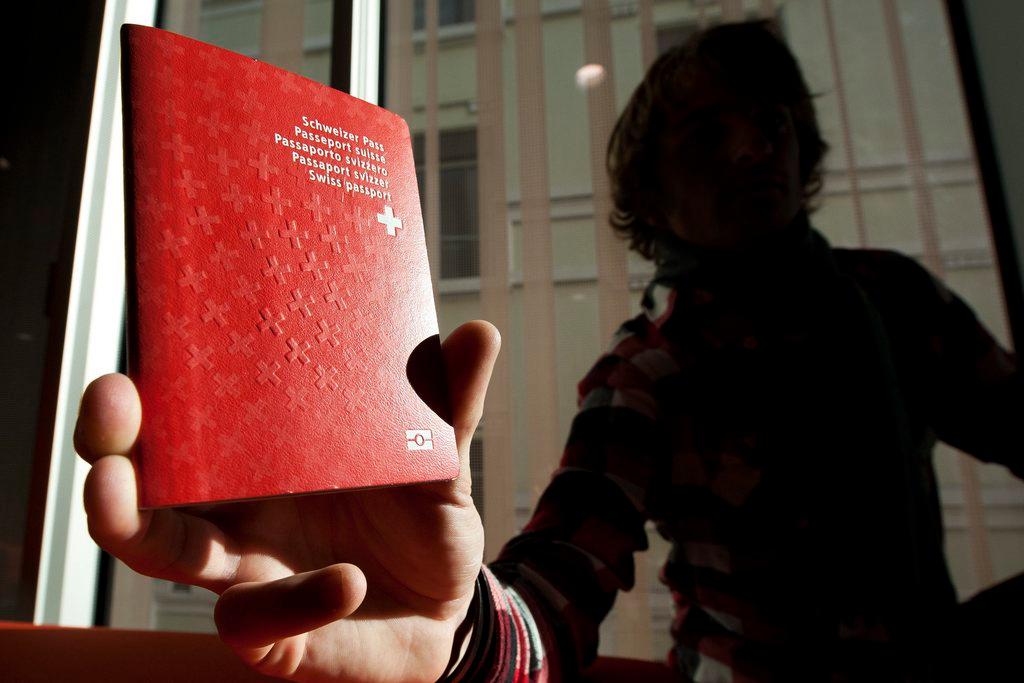
How far should ministers go to prove their ‘Swissness’?

The dual-nationality of two of the candidates to replace outgoing foreign minister Didier Burkhalter has sparked debate in Switzerland. Some question the notion of having more than one nationality, while others criticize politicians’ willingness to forego their second passport too willingly.
LegallyExternal link, nothing prevents Swiss ministers from being citizens of another country while in office. Just one broad guideline applies: no accepting of foreign titles or decorations, and no holding of official positions in other countries.
Yet the issue is contested, and not just when it comes to political roles. In 2004, the conservative-right Swiss People’s Party campaigned in parliament to enforce single nationality. Four years later, they again led a charge demanding that naturalised Swiss citizens give up their passport of origin. Both attempts were unsuccessful.
Loyalty to Switzerland
But the debate has now re-emerged following the statements of two of the three candidates to become the next Swiss foreign minister (both dual-nationals) that they would give up their second passport.
“This is a personal choice that I made when I decided to become a candidate for the cabinet”
Ignazio Cassis
Ignazio Cassis, favourite to succeed Burkhalter when the latter steps down in October, has announced that he plans to give up the Italian nationality he inherited from his father.
Concerned about any questioning of his loyalty to Switzerland – particularly in the case of conflict with another country – Cassis, the leader of the centre-right Radical parliamentary group, announced the decision last week.”This is a personal choice that I made when I decided to become a candidate for the cabinet,” he told Swiss public radio, RTS.
He mentioned the example of the diplomats he would be leading. “We ask our ambassadors to only have one nationality. I find it hard to imagine that their boss would have two.”
Former Geneva mayor Pierre Maudet, also in the race to take over from Burkhalter, is both Swiss and French. “I was born in Switzerland, I was educated here, did military service here, I feel completely Swiss. But I cannot erase the fact that part of my family comes from France. This is part of my personality,” he told swissinfo.ch.
Nevertheless, Maudet has also declared that he is ready to give up – at least temporarily – his French passport if the government deems it necessary. “I can understand that this irks part of the population,” he said. “If the cabinet were to deem that this caused a problem, especially if I was to be directing the foreign affairs or defense ministries, I would gladly accept its decision.”

More
Ten things you need to know about Swiss citizenship
Pressure from the right
Both politicians, before entering the race, had remained discreet about their dual-nationality. In the case of Cassis, it was an article in a free regional newspaper edited by the right-wing Ticino League party that pushed him to make a statement.
“The People’s Party sees in dual-nationality bad, or second-class, Swiss,” said historian and author Hans-Ulrich Jost. “This is why so many career-minded politicians don’t voluntarily promote their belonging to another country.”
However, on the left and centre, certain voices have accused the candidates of not resisting strongly enough the pressure. “It is pathetic to give up one’s identity,” declared the Christian Democrat Christophe Darbellay. The socialist Ada Marra, herself both Swiss and Italian, said on Twitter that “here are two men who have served their country for years, and now we put them on trial for betrayal?”
Almost 900,000 people – about 17% of Swiss citizens – hold another passport. In the government, the mirror of society, various elected officials have held onto their French, Italian, Spanish, or Turkish origins in the form of dual-nationality.
Adapted from French by Domhnall O’Sullivan

In compliance with the JTI standards
More: SWI swissinfo.ch certified by the Journalism Trust Initiative






























You can find an overview of ongoing debates with our journalists here . Please join us!
If you want to start a conversation about a topic raised in this article or want to report factual errors, email us at english@swissinfo.ch.